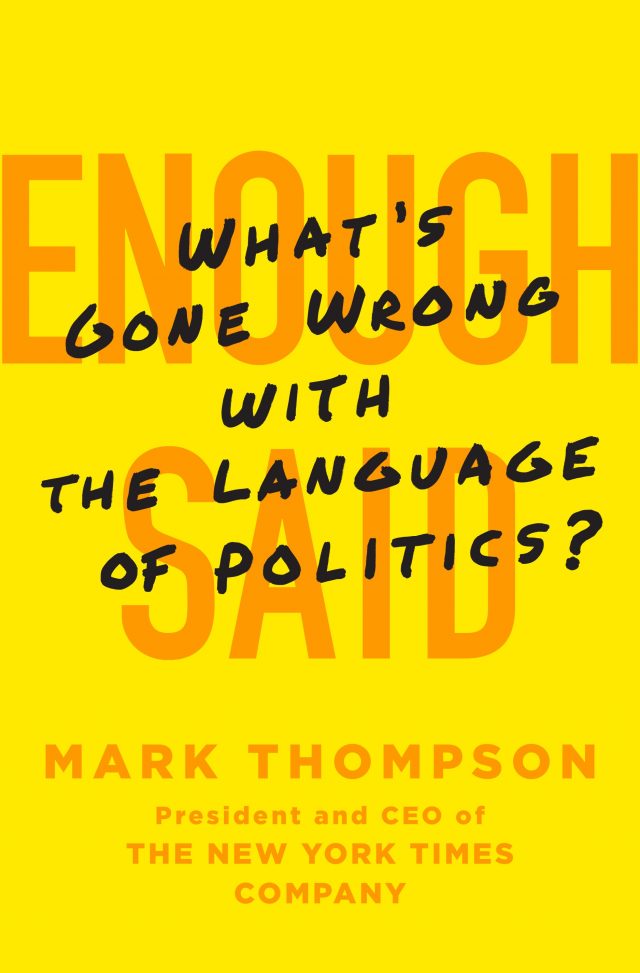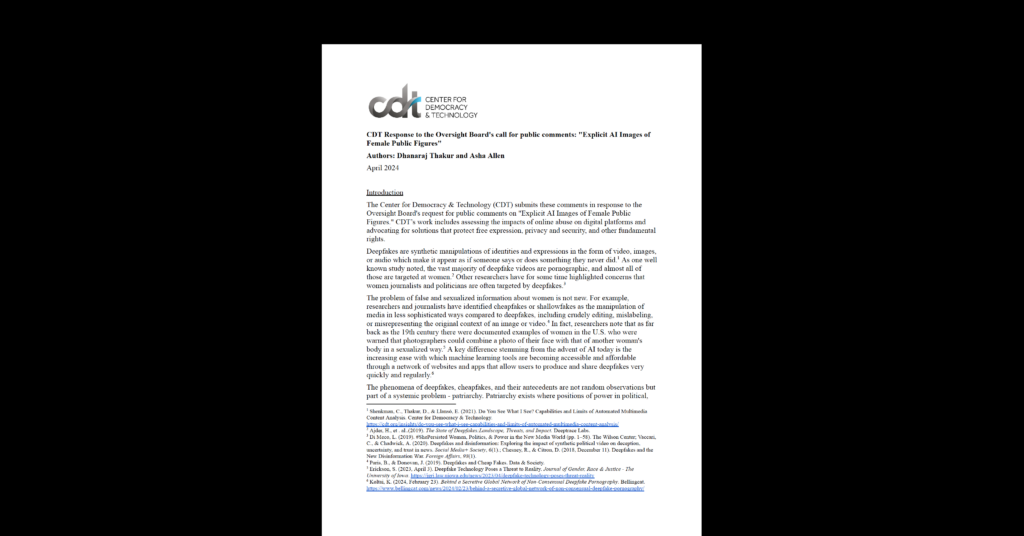What’s Gone Wrong with the Language of Politics? An Interview with the NY Times CEO
Mark Thompson, the President and CEO of the New York Times Company, has a new book coming out on September 6, 2016. The book, Enough Said: What’s Gone Wrong with the Language of Politics?, explores the role public language is playing in creating a “crisis of trust in politics in the Western world.” In this Q&A, Thompson talks about his new book, and shares his thoughts on how the internet and technology is influencing public discourse. 
CDT: What inspired (or perhaps enraged) you to write this book?
MT: After more than thirty years watching – and helping to shape – the relationship between politicians, the media and the public, I became convinced that something has gone badly wrong. I wrote the book to call attention to the crisis in public language, to explore its root causes and to propose some steps we could take to begin to put things right.
What do you see as the fundamental changes in the language of politics?
The appetite and space available for complexity and detail has shrunk, so both politicians and editors usually favor highly compressed headlines and sound bites which maximize impact at the expense of explanatory power. News management by political leaders and parties, and the increasingly sophisticated use of marketing insights to shape political messages, means that spontaneity and surprise are generally lacking. This has created an opportunity for the “authenticity” of anti-politicians like Beppe Grillo and Donald Trump. Media distrust of politicians has become endemic.
 What role do you think new digital channels of communication, such as Twitter and Reddit, play in the coarsening of political discourse?
What role do you think new digital channels of communication, such as Twitter and Reddit, play in the coarsening of political discourse?
Social media has provided voters with more information than they have ever enjoyed before. Unfortunately, it has also coarsened political debate and normalized everything from paranoid conspiracy theories to personal abuse. The flavor of anonymous online debate has crossed back into conventional media and public life and encouraged politicians to speak about each other in terms that would have been unthinkable a generation ago.
How can traditional media help address the problem?
We should allow politicians across the spectrum more time to address the public in their own words. Let’s cover the controversy, but devote more space to underlying policy proposals as well. As social media takes over our old role of delivering raw news as quickly as possible, concentrating on context, analysis and thoughtful comment makes more business sense anyway. We should attempt to establish some kind of presumption of good faith about politics without losing our critical nerve, and we should help the public do the same.
The internet has certainly disrupted traditional business models of media. Can most media outlets survive in the digital world?
No, most existing media outlets will fail. But most need not mean all. Two thoughts: 1.) digital advertising on its own will not sustain quality publishers; 2.) The public’s willingness to pay for quality content will grow both in the US and around the world. Pay models like that of The New York Times will be viable.
The internet is hailed as an enabler of free expression for all. Do you believe that is reality?
There’s no question that the internet has boosted plurality and freedom of expression in the West and many other countries. It may turn out to be an unstoppable force for free speech everywhere, though at present oppressive regimes are finding surprisingly effective ways of suppressing dissent when they choose to. Journalists are at more risk of censorship, intimidation, and even violence than they were in the pre-internet era. And, even in countries like America where freedom of expression has been substantially achieved, the truth can still be hard to find – not because it has been suppressed, but because it is difficult to distinguish amid all the noise.


